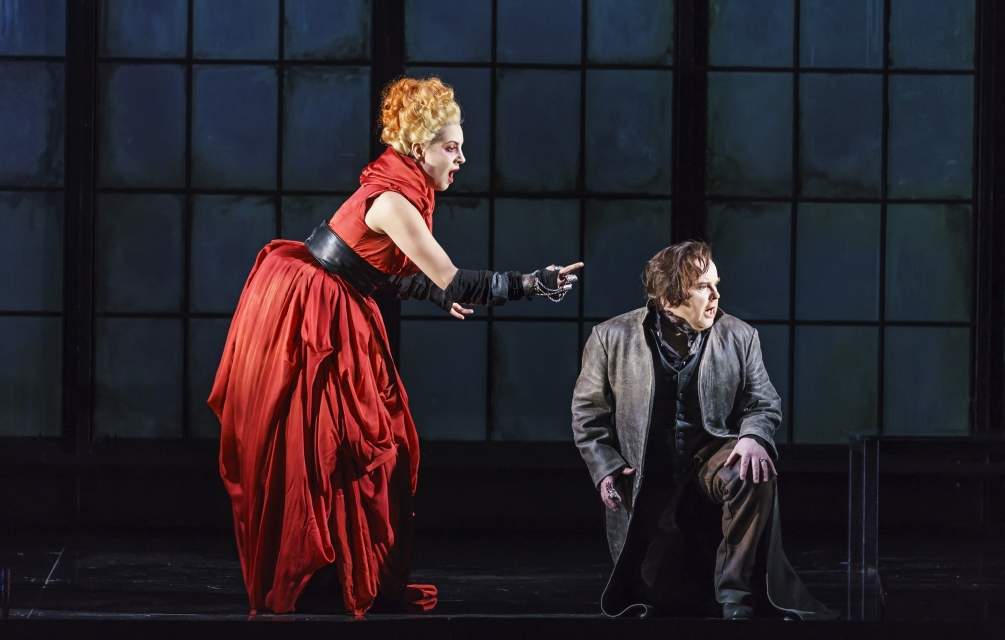
Joyce El-Khoury’s visceral performance as a scorned Elizabeth I provided the flame throughout this WNO production of Donizetti’s dark tale of unrequited love, jealously and pride. El-Khoury raged across the stage, portrayed as a lethal spider at the centre of her own web. Adorned in lavish brilliant red cloth with her light red locks swept back away from a white face with rouged eye sockets, she presented an epicentre of wronged affection, while later in a state of acceptance and exhaustion, a broken sense of power and loss. Her delivery and range were impeccable, with glorious notes piecing the night, cascading down above the urgent strings and timpani under the athletic direction of conductor James Southall.
The tragic opera Roberto Devereux is a construct inspired by some real, some mythical stories involving Robert, the 2nd Earl of Essex. A charming court favourite, in real life Essex fell from favour after a poor campaign in Ireland and was eventually tried and convicted for treason after an ill-advised attempt to take over the City of London with a band of followers. He was the last person to be beheaded at the Tower of London in 1601.
In his libretto, Salvatore Cammarano casts Sara, wife of the Duke of Nottingham, as the secret lover of Roberto, who is also her husband’s best friend. But the trueloves have to keep it quiet to preserve her reputation and position. Elizabeth meanwhile, declares her love for Roberto but suspects she has a rival. Roberto himself is walking a high wire, between favour from the Queen on the one hand, and those plotting against him in court, Lord William Cecil and Sir Walter Raleigh, on the other. Elizabeth is under political pressure to find Roberto guilty of treason, but urges herself to forgive him in a personal internal struggle between duty and heart. She has given him a ring, the equivalent of a presidential pardon, which she promises will save his life if he can present it to her if threatened. The Duke of Nottingham meanwhile attempts to exempt Roberto from accusation, until he too feels cheated by his friend.
A row of paned windows forms the backdrop as Sara weeps over the story of Fair Rosamund, in which she empathises with the heroine. Mezzo-soprano Justina Gringytė gives the role a magnetic presence, matching El-Khoury’s intensity every step of this sorry way – an extraordinary duo in exemplary form.
Barry Banks’ sweet tenor brought a plaintive quality to the role of Roberto, especially in his aria with Sara, ‘Da che tornasi, ahi misera – Since you returned, ah miserable me!’, while stand-in baritone Rhys Jenkins impressed with gloriously rich tones throughout.
Lighting by Matthew Haskins managed to bring the drama out of faces and torsos against a largely blackened background. While Madeleine Boyd’s design was minimal in the early acts until in a show-stopping scene later, Elizabeth is scuttled across the stage at the helm of a mechanical spider, suddenly injecting animation. In other spider references Roberto’s tethers while incarcerated appeared like the strands of a web, and earlier Sara offered Elizabeth insects to feed her (virtual) pet tarantula.
But as El-Khoury tore the air apart in her heart-wrenching finale – Vivi, in grato, a lei accanto, the real drama of the night was to be found within the human voice, and Donizetti’s genius for Bel Canto style. ★★★★☆ Simon Bishop 13th April 2019

